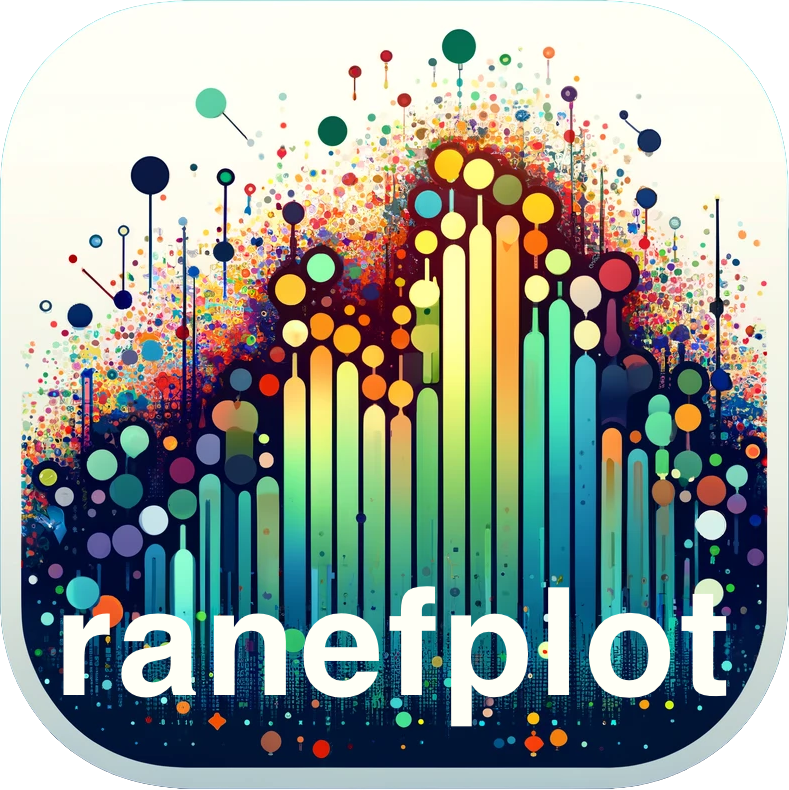 angelhair
[Code
repository, submit issues]
angelhair
[Code
repository, submit issues]
Creating spaghetti plots in Stata that are readable with large amounts of data.
Spaghetti plots (line plots over time for multiple groups/individuals)
are handy tools for data exploration, but become unreadble rapidly as
the number of groups/individuals increases. To address this, the
angelhair command (named after
the skinny spaghetti)
produces a spaghetti plot where all groups/individuals are plotted, but
a small random selected number of groups/individuals are highlighted so
show individual trends.
Install the package with
net install angelhair, from("https://errickson.net/angelhair")
 ranefplot
[Code
repository, submit issues]
ranefplot
[Code
repository, submit issues]
Produces a visualization of the random intercepts in a mixed effects model.
Generates a scatterplot of the random effects from the model, along with confidence bounds. The points are re-ordered to produce an easier to see visualization. If the model includes multiple random effects, you can choose from which level to visualize.
Install the package with
net install ranefplot, from("https://errickson.net/ranefplot")
 kublakhan
[Code
repository, submit issues]
kublakhan
[Code
repository, submit issues]
A collection of commands I use for personal work.
-
numlevels: Returns the number of unique values in a variable. Similar to printingr(r)after alevelsofcommand, but quicker. -
fencode: Encodes string variables to numeric with labels, essentially allowingencode, replace. -
isconstant: Checks whether a variable is constant, optionally within each level of a grouping variable. -
timing: A prefix (e.g. called astiming: command) to produce timing benchmark information. -
bvtable: When a command (such asnlcom) returns onlyr(b)andr(V)instead ofr(table)(which includes p-value and CI), this will generate a matrixtable. -
standardize: A direct command to mean-center and optionally scale multiple variables. -
cv: Similar tocf, but relaxes the requirement that the data are identical, only that the variables metadata is identical. Useful when you have two data files from different groups of people that should be same in terms of variable names, types, formats and labels.
net install kublakhan, from("https://errickson.net/kublakhan")